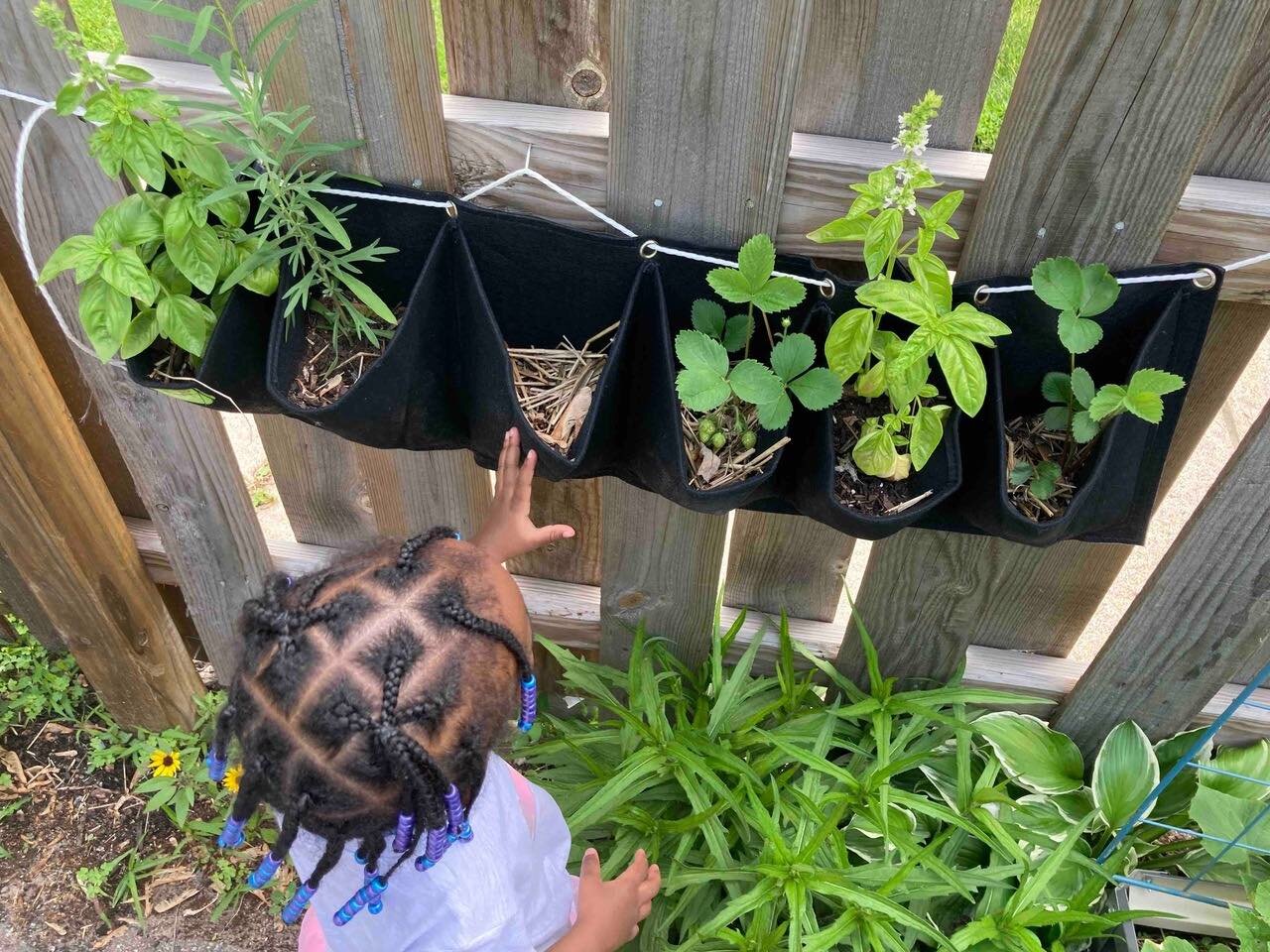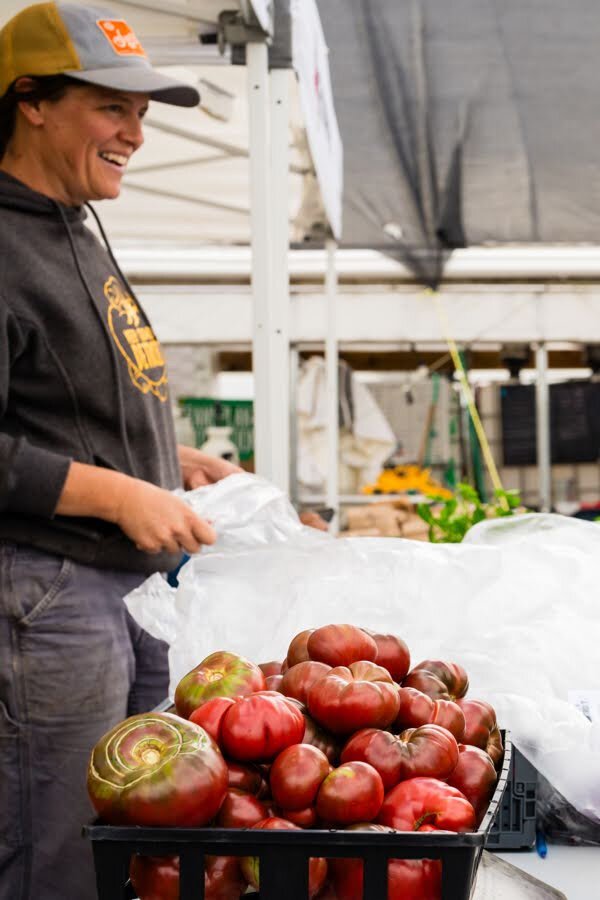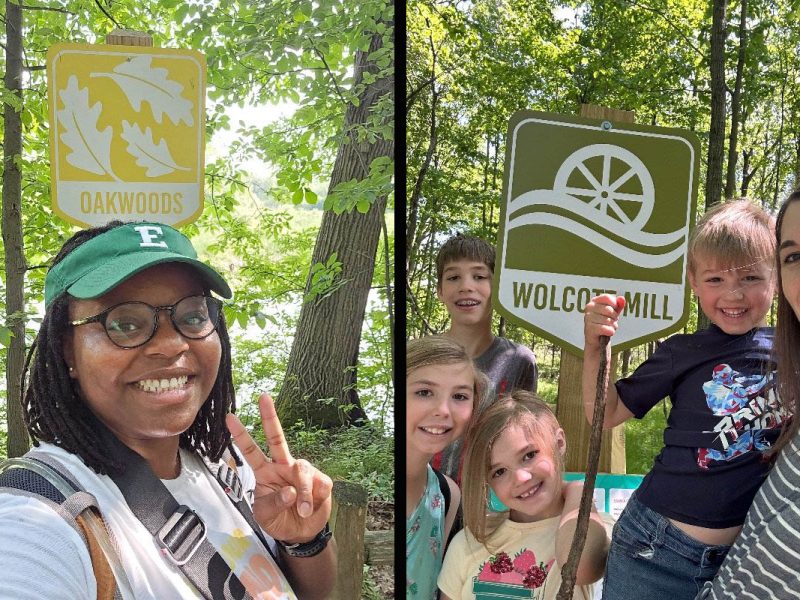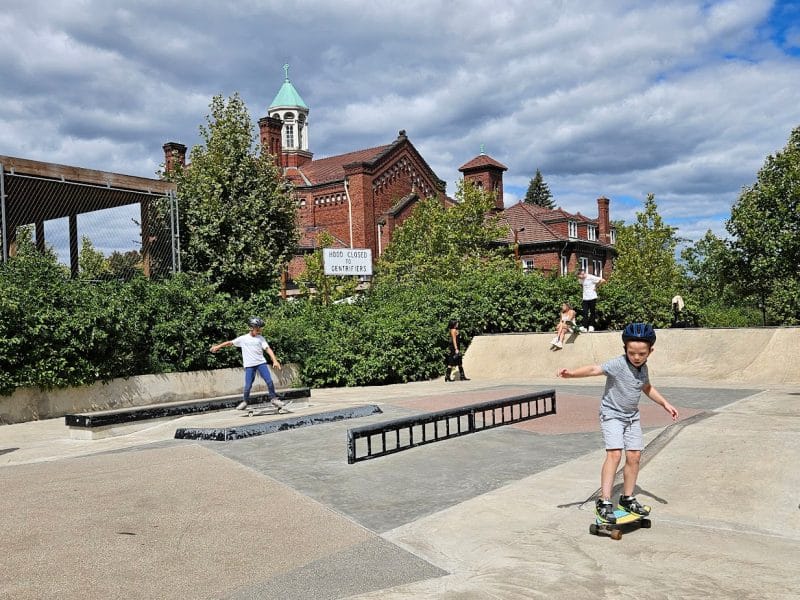Learning as they grow: Urban gardens as a teaching tool in early childhood education
Keep Growing Detroit connects gardening and food sustainability with early childhood learning to create healthy experiences for little ones in Detroit, Hamtramck and Highland Park.
In Detroit, where community and resilience grow together, Keep Growing Detroit (KGD) is a beacon for sustainable healthy living. Established in 2013 as a gardening resource focused on sustainability, food justice, education and healthy sustenance, KGD has thrived by evolving.
Growing out from its core mission advocating for sustainable gardening practices in the city, KGD’s Early Childhood Program launched in 2015. This initiative emerged organically from interactions with participants of KGD’s cornerstone Gardening Resource Program, which provides seeds, plants, materials and guidance to urban gardeners. Many of these participants were also involved with local early childhood learning centers and inquired about assistance creating programs in that arena.
At the heart of KGD’s Early Childhood Program lies a profound question, “How do you raise your children?” says KGD’s Program Director Lindsay Pielack. This question drives KGD’s commitment to food, equity, and wellness throughout the city including Highland Park and Hamtramck.
“Food is more than just sustenance,” she says. “it is a vital thread that connects families and communities.”
Building partnerships, not prescriptions
“Our approach is centered on developing relationships rather than presenting ourselves as the experts,” explains Pielack. “I never walk in assuming I know more than a provider. These are champions of how childcare could look different with gardens.” This humility fosters collaboration, allowing KGD to tailor its support to the unique needs of each learning center.
In the program’s initial stages, Pielack reflects on the importance of trial and error: “It’s a humbling process.” Most early childhood centers are led by women who are passionate about garden-based learning. To effectively support them, KGD first sought to understand their goals—be it promoting nutrition, enhancing parent engagement, or teaching social-emotional skills through gardening.
Listening is foundational to KGD’s methodology. “For some settings, gardening is a way to connect children to nature,” Pielack notes. “For others, it’s about encouraging the consumption of fruits and vegetables.” These diverse objectives mean that every center requires different tools and types of support.
Tailored plans for unique needs
Establishing a successful gardening initiative in early childhood settings involves navigating unique challenges – often with long-term goals and short-term tactics growing from a dialog between Keep Growing Detroit and early childhood practitioners.
“There’s a learning curve for any gardener,” Pielack explains, “especially when working with early childhood providers who may not yet be fully on board with gardening initiatives.” Offering essential technical assistance is just part of the approach; KGD also helps the centers assess their capacity and develop tailored plans for success.
The journey toward building a thriving garden program can take several years. “For family gardens, it’s typically two to three years, but for early childhood gardens, it can stretch to three to seven years,” Pielack notes. This timeline reflects the need for a more hands-on approach, ensuring that each provider receives the support necessary to flourish.
One component of KGD’s initiative is the annual professional development series, Garden-Based Learning for Early Childhood Professionals. This three-part series, offered free of charge via Zoom, is accredited by MiRegistry – the governing entity that certifies Early Childhood Learning in the state. Participants earn six continuing education credits. Each class focuses on practical skills and concepts, empowering educators to integrate gardening into their curricula effectively.
Growing together
Currently, KGD supports garden-based learning in 35 to 40 early childhood settings across Detroit, Highland Park, and Hamtramck. These include a mix of Head Start agencies, private daycare centers, and home-based providers.
The program’s influence travels block by block, fostering a sense of ownership among participants. “These women know each other and share similar challenges,” says Pielack. “They are responsible for changing how childcare looks for children in Detroit.”
KGD analyzes longitudinal data on fruit and vegetable intake, revealing the program’s tangible impact on children’s health. Anecdotal evidence highlights the transformative power of these experiences. Pielack recalls seeing children in strollers, waddling along to choose plants, showing a budding connection to nature.
A vision for healthy futures
At its essence, KGD’s Early Childhood Program is about nurturing healthy, resilient children who can thrive. Through garden-based learning, children not only develop a love for nature, but also cultivate essential life skills that contribute to their overall well-being.
“As children engage with nature and learn about healthy eating,” says Pielack, “they are also becoming stewards of their community.”
With this philosophy at heart, Keep Growing Detroit is helping carry forward the legacy of resilience that defines Detroit. With every garden nurtured, they’re planting the seeds for a vibrant and healthy future.
This story is part of our Nonprofit Journal Project, an initiative focused on nonprofit leaders and programs across Metro Detroit. This series is made possible with the generous support of our partners, the Ralph C. Wilson Jr. Foundation, Michigan Nonprofit Association and Co.act Detroit.







